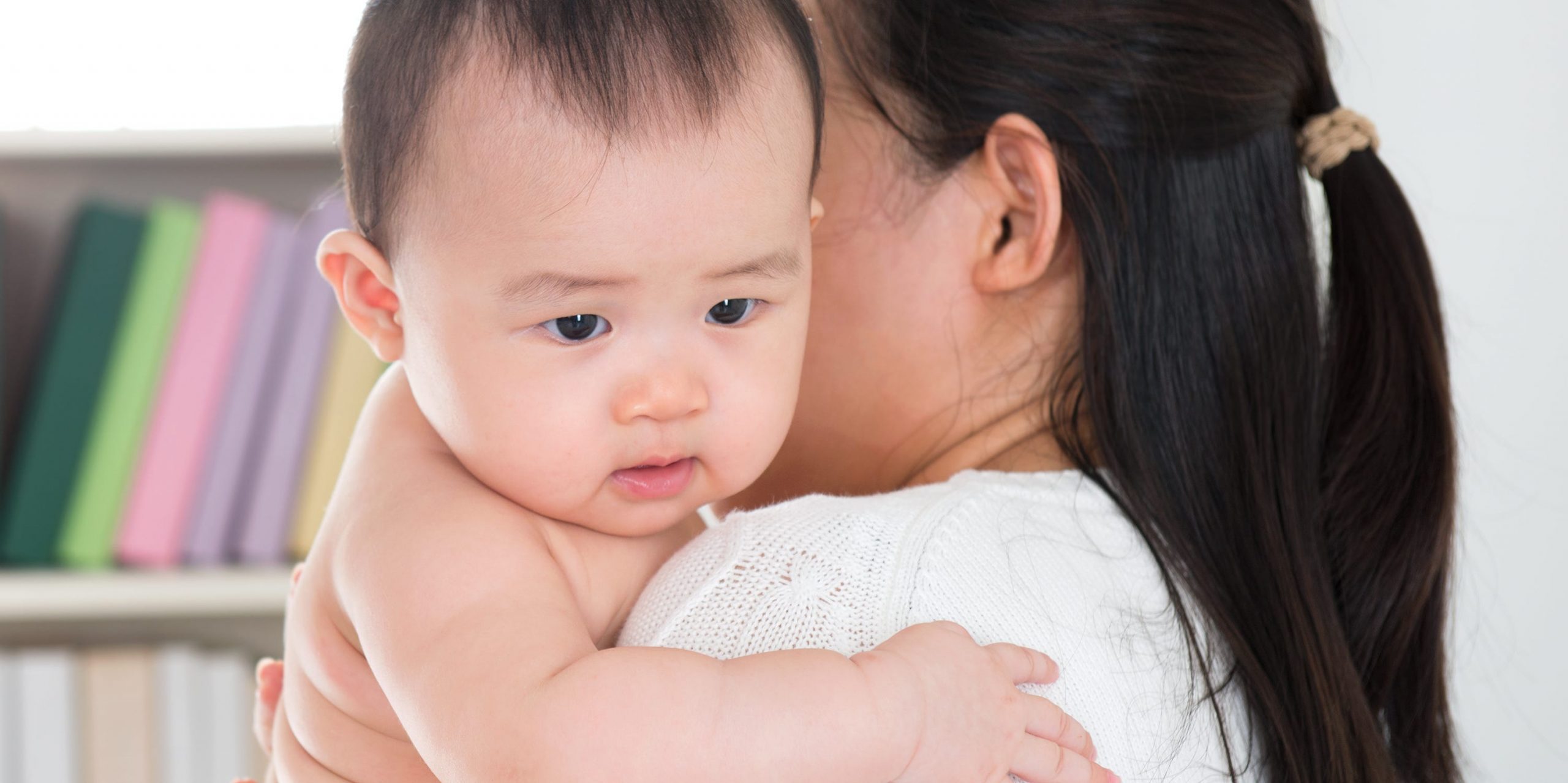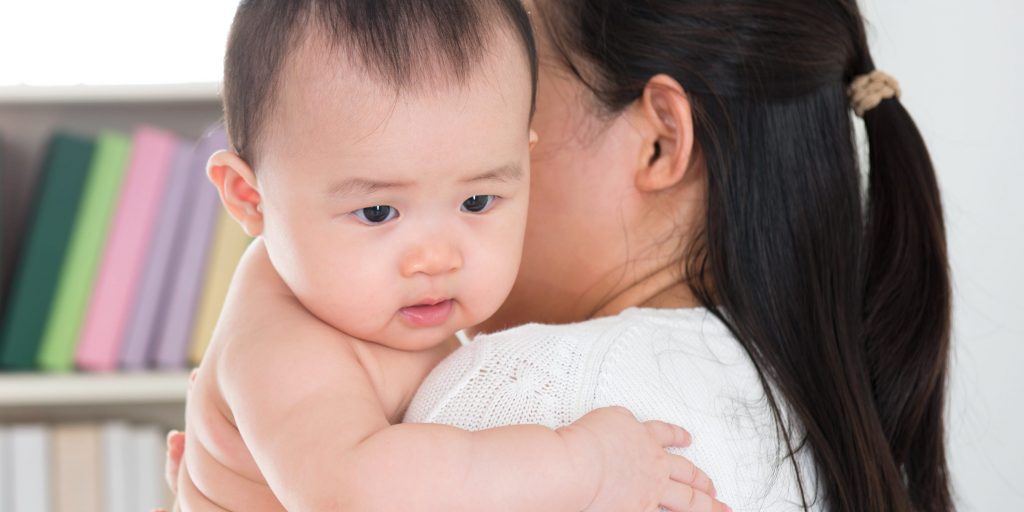
szefei/Getty Images
- To get rid of baby hiccups, try burping them during feeding and slowing down how fast they eat.
- Baby hiccups often occur after eating too fast or crying for a long period of time.
- Hiccups should resolve on their own within 15 minutes to a couple of hours.
- Visit Insider's Health Reference library for more advice.
Baby hiccups are normal and rarely a reason for concern. Here's what you need to know about what causes hiccups in newborns and when you should consult a doctor.
What causes baby hiccups?
Hiccups can actually start while your baby is still in the womb. The reasons for fetal hiccups are not yet known, though some theories indicate they are linked to lung development as the baby practices breathing by taking in amniotic fluid.
Newborn hiccups, on the other hand, are better understood. They can occur when the diaphragm spasms, forcing air out through the vocal cords. Newborns can get an irritated diaphragm from eating or drinking too fast or by a prolonged period of crying, says Gina Posner, MD, a board-certified pediatrician at Memorial Care Orange Coast Medical Center.
How to get rid of baby hiccups
Once the hiccups start, the most simple and effective way to get rid of newborn hiccups is to wait it out and let them run their course. "It usually makes the parents go crazy because they feel bad for their baby, but the babies usually don't get bothered by it at all," Posner says.
Hiccups are not harmful to babies, and attempting to stop them isn't necessary. They usually last about 10 to 15 minutes, though they can last up to an hour or two, Posner says.
If you want to try and prevent hiccups before they start, try slowing the baby down during feeding. If they're drinking too quickly, babies can take in too much air, which can cause their stomach to swell and irritate the diaphragm, as a result.
If you're feeding your baby from a bottle, the American Academy of Pediatrics (AAP) recommends burping them after every two to three ounces of milk intake. If you're breastfeeding, you can burp them when you switch breasts.
Insider's takeaway
Newborn hiccups are rarely a cause for concern, Posner says. But if they seem to be lasting for days, causing other signs of distress in your baby, or they frequently occur in a baby older than 12 months, it's a good idea to consult a doctor.
Moreover, if your baby is extremely fussy and has prolonged periods of crying with hiccups you should also consult the pediatrician.
Though rare, frequent hiccups can be a sign of gastroesophageal reflux (GER), which occurs when stomach acid and partially digested food come back up through the esophagus. Most babies will outgrow GER by nine to 12 months of age, but if your baby is frequently and forcefully spitting up, refusing feeds, or crying and arching their back during feedings, you should seek medical attention as these can be signs of complications from reflux.
